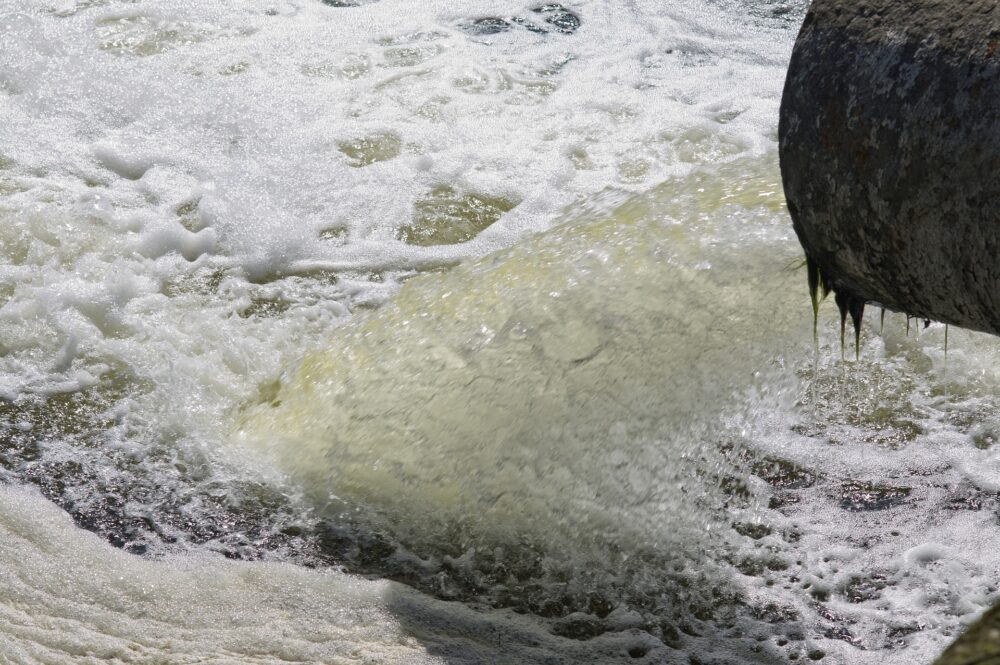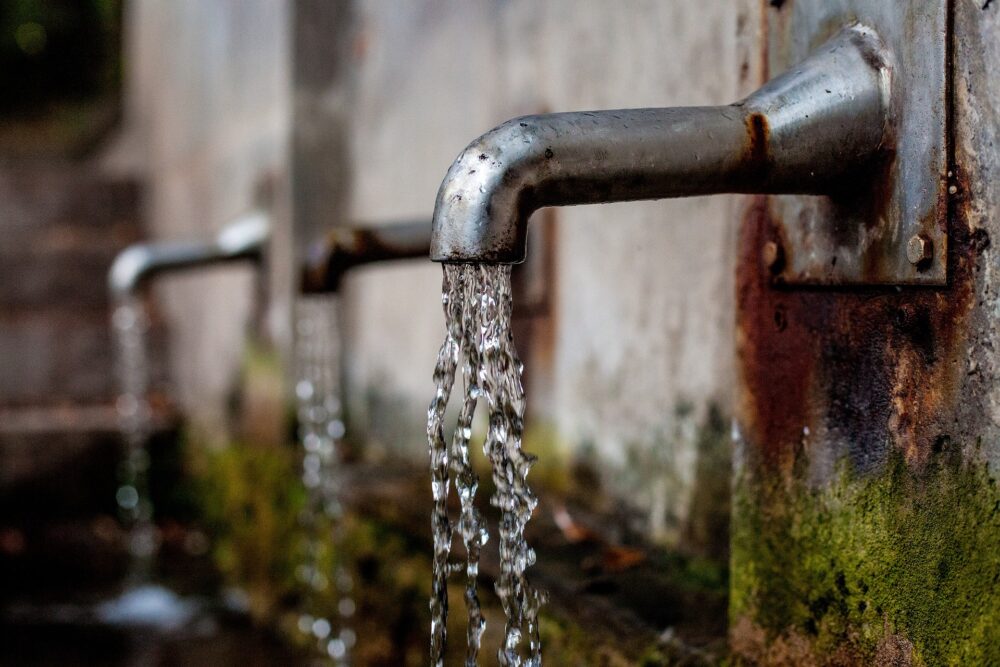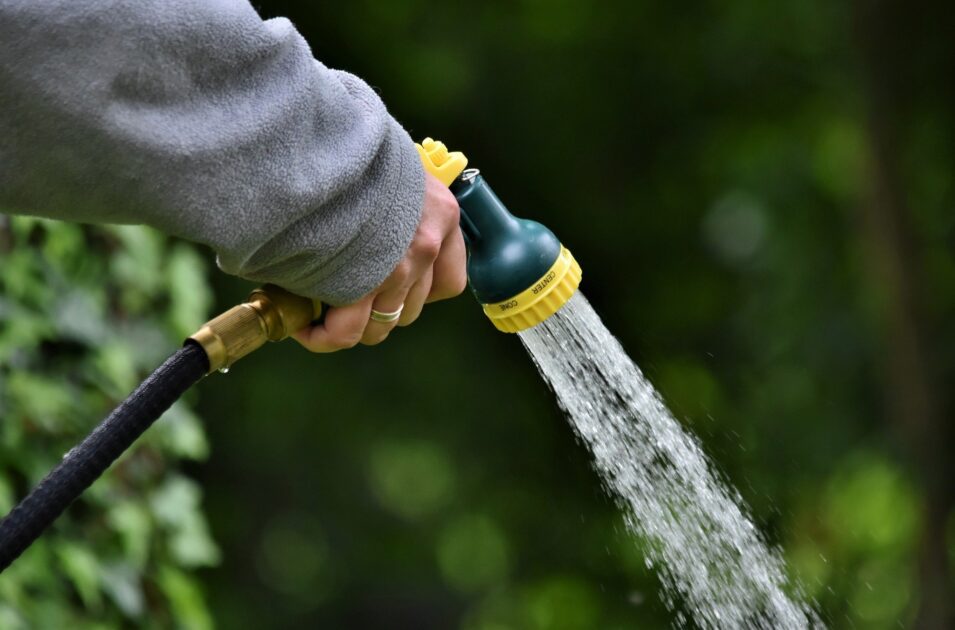Unlocking Water Efficiency in Schools

Unlocking Water Efficiency in Private Schools: How Small Changes Can Make a Big Impact
Did you know that a typical primary school in the UK uses around 3.5 cubic metres of water per pupil per year? That’s roughly 3,500 litres per student! For schools, inefficient water practices can lead to unexpectedly high costs – and greater environmental impact than we might imagine. Yet, by making simple changes, schools can save money and play a pivotal role in promoting sustainability.
Why Water Efficiency Matters in Schools
When we think about school budgets, water may not be the first thing that comes to mind. However, water bills are one of the costs that can quickly add up without close monitoring. Leaks, outdated fixtures, and even small inefficiencies can lead to substantial costs. Beyond saving money, improving water efficiency offers schools the chance to lead by example, teaching students the value of conserving resources and protecting our environment.
For procurement and facilities managers, these improvements present a unique opportunity: to make a difference in the school’s financial health and inspire the next generation of eco-conscious citizens.
Practical Steps for Improving Water Efficiency in Schools
A few targeted actions can help private schools reduce water consumption effectively:
- Promptly Fix Leaks: One leaking tap can waste up to 5,500 litres of water per year. Regular checks can prevent this unnecessary expense.
- Upgrade to Water-Saving Fixtures: Small investments in fixtures like dual-flush toilets, low-flow taps, and water-efficient showerheads yield big returns by reducing water use across the board.
- Use Smart Meters for Tracking: Installing smart water meters provides real-time data, allowing facilities managers to identify areas where water use is higher than necessary and take corrective action.
The Role of a School Water Audit: A Smart Solution
A water audit is a comprehensive review of your school’s water usage. Tailored for educational institutions, it examines current consumption patterns, identifies areas of waste, and offers practical recommendations for improvement. Not only does a water audit pinpoint hidden issues – like undetected leaks or inefficient systems but it also outlines a clear path toward reduced water usage, cost savings, and an improved environmental footprint.
Why Invest in Water Efficiency? The Benefits Beyond Cost Savings
- Financial Savings: Reducing water waste translates directly into lower bills, freeing up resources for other important school initiatives.
- Educational Value: Schools committed to sustainability serve as role models for students, imparting lessons on responsibility and conservation.
- Long-Term Facility Health: Efficient water systems experience less strain, meaning fewer repairs and a longer lifespan for essential infrastructure.
Make Your School a Leader in Sustainability
Looking to make a lasting impact? A commitment to water efficiency empowers schools to manage resources responsibly, benefiting both the environment and the school’s bottom line. Our water audit service for private schools in the UK provides actionable insights to help you achieve these goals – while contributing to a more sustainable future.
Take the First Step Today
Water efficiency is more than a cost-saving measure; it’s a commitment to sustainability, a powerful teaching tool, and an investment in the future. With each step toward responsible water use, your school can set an example for students, showing them the importance of conserving our planet’s resources. Every drop saved contributes to a larger movement towards sustainability, making your school a leader in positive environmental impact.
Ready to take action? Contact us to schedule a school water audit and let’s work together to create a more sustainable, resource-conscious future for your school – and for the generations it will serve.
Trade Effluent Consents: What You Need to Know

Trade Effluent Consents in the UK: What You Need to Know
For UK businesses that discharge wastewater, understanding and maintaining the correct trade effluent consent is crucial to avoid regulatory penalties and ensure compliance with environmental standards. Whether you’re in manufacturing, food processing, or any industry that produces trade effluent, this guide will walk you through the key aspects of managing your consent levels effectively.
What is Trade Effluent Consent?
Trade effluent consent is a legal requirement for businesses that discharge liquid waste into public sewers. Issued by your local water company, this consent details the types of effluent your business can release, the volume, and the acceptable levels of various pollutants. Non-compliance with consent conditions can lead to hefty fines, business disruptions, or even prosecution.
Am I on the Right Trade Effluent Consent Levels?
Many businesses ask, “Am I operating under the correct trade effluent consent levels?” To answer this, you need to regularly assess whether your business’s output matches what is allowed under your current consent agreement. Consider the following:
- Volume of Discharge: Ensure that the volume of wastewater your business discharges matches the limits specified in your consent. A sudden increase in production or a new process could affect your compliance.
- Composition of Effluent: Review the types of contaminants in your effluent. Consent levels often set limits on chemicals like oils, grease, heavy metals, and pH levels. Regular testing of your effluent is critical to ensuring these stay within the permissible range.
- Effluent Treatment: Are your existing treatment methods adequate? If you’ve made changes to your production process or materials, this may affect your effluent composition, requiring an update to your treatment setup or consent levels.
- Changing Regulations: The environmental landscape in the UK is constantly evolving, with stricter regulations and standards being introduced. Ensure that your consent levels are up-to-date with any new government or environmental agency guidelines.
If you’re uncertain about any of these aspects, it might be time to review your trade effluent consent.
How to Apply or Amend Trade Effluent Consent
Applying for or amending trade effluent consent is typically handled by your local water company. The process includes:
- Providing Detailed Information: You’ll need to submit data on the type of effluent produced, including the volume and concentration of pollutants.
- On-Site Assessment: Some water companies may send an inspector to assess your site’s discharge processes.
- Waiting for Approval: Consent applications can take several weeks or even months to process, so it’s crucial to plan ahead.
In many cases, businesses must pay a fee based on the volume and strength of the effluent produced. Your consent level might need regular updates as your operations evolve, particularly if you expand or introduce new products.
What Happens If I Exceed My Consent Limits?
Exceeding your trade effluent consent can have severe consequences:
- Penalties: Water companies impose fines if your effluent exceeds the consent limits, especially if it causes damage to the sewer system or negatively impacts wastewater treatment plants.
- Legal Action: In extreme cases, you could face prosecution under environmental protection laws.
- Increased Costs: Exceeding consent may lead to increased charges from your water provider, particularly if the effluent is more expensive to treat than initially agreed.
Monitoring and Managing Trade Effluent
Effective management of trade effluent can help you avoid non-compliance and the associated costs. Here’s how:
- Install Monitoring Equipment: Many businesses benefit from installing automatic monitoring systems to track the volume and quality of their trade effluent.
- Regular Testing: Frequent testing of your effluent ensures that it stays within the legal parameters of your consent. You can perform in-house tests or hire a professional service to manage this for you.
- Update Consent Levels: If your business expands or changes its operations, it’s critical to update your trade effluent consent to reflect new discharge volumes and types.
Why Trade Effluent Consent is Important for Environmental Compliance
UK regulations are increasingly focused on sustainability, and trade effluent plays a major role in the environmental impact of industrial processes. Proper consent management ensures your business remains compliant with the Environmental Permitting Regulations (EPR) and the Water Industry Act. Failure to comply can not only lead to fines but also damage your company’s reputation, especially as customers increasingly value eco-friendly practices.
How Wodr Can Help
At Wodr, we specialise in helping businesses manage their trade effluent consents, ensuring compliance with environmental regulations while optimising processes to reduce costs. Our team can assist in:
- Consent Review: We’ll review your current trade effluent consent and assess whether adjustments are needed based on your business operations.
- Monitoring Solutions: We provide cutting-edge technology and services to help you monitor your effluent discharge in real time.
- Regulatory Compliance: Our consultants stay up-to-date with all the latest regulations and will ensure your business is fully compliant.
By partnering with us, you can ensure that your business not only meets regulatory requirements but also adopts efficient and cost-effective trade effluent management strategies.
Trade Effluent in the UK: What's next?

The Future of Trade Effluent Charges in the UK: A Detailed Outlook for the Next 3-5 Years
As the commercial landscape in the UK evolves, businesses need to stay ahead of regulatory and economic changes, particularly concerning trade effluent charges. Over the next three to five years, these charges are expected to see significant adjustments driven by several factors, including environmental regulations, infrastructure investments, and evolving business practices. Here’s a comprehensive look at what businesses can expect and how they can prepare.
Understanding Trade Effluent Charges
Trade effluent refers to any liquid waste discharged into the public sewer from a business or industrial process. This can include anything from contaminated water used in manufacturing to chemicals from cleaning processes. Since this waste can have a significant environmental impact, it is subject to strict regulations, and businesses must obtain consent to discharge trade effluent.
Charges for trade effluent are typically calculated based on the volume and strength of the effluent, along with the cost of treating it to make it safe for disposal. These charges are determined by water companies and vary depending on the region and the specific nature of the effluent.
Key Factors Driving Changes in Trade Effluent Charges
- Environmental Regulations: The UK government’s commitment to reducing carbon emissions and improving water quality is likely to drive stricter environmental regulations. These regulations will impose more rigorous standards for the treatment and disposal of trade effluent, potentially leading to higher charges. Businesses may need to invest in more advanced treatment technologies to meet these new standards, which could increase operational costs.
- Infrastructure Investments: Water companies across the UK are investing heavily in upgrading and expanding wastewater treatment facilities. For example, Southern Water has committed nearly £1 billion to water and wastewater infrastructure improvements since 2020. These investments are crucial for meeting future demand and environmental targets but are also likely to be passed on to businesses in the form of higher trade effluent charges.
- Economic Factors: The broader economic environment, including energy prices and inflation, will also influence trade effluent charges. Rising energy costs, in particular, can significantly impact the cost of treating trade effluent, as wastewater treatment is an energy-intensive process. Analysts predict that energy price caps may rise gradually over the coming years, which could further increase the cost of effluent treatment.
- Industry-Specific Trends: Certain industries, such as agriculture, food and drink manufacturing, and chemical production, are more heavily impacted by trade effluent regulations due to the nature of their waste. Businesses in these sectors should expect more stringent monitoring and potentially higher charges, particularly if they fail to adopt more sustainable practices.
Predicted Changes in Trade Effluent Charges
While it’s challenging to predict exact figures due to the complexity of factors involved, industry experts anticipate that trade effluent charges could rise by 10-20% over the next three to five years. This increase will vary by region and industry, with businesses in more environmentally sensitive areas or those producing higher-risk effluent likely to see the most significant hikes.
Preparing for the Future
To mitigate the impact of rising trade effluent charges, businesses should consider the following strategies:
- Invest in Efficiency: Implementing more efficient processes and reducing the volume and strength of trade effluent can help businesses minimise charges. This might involve investing in new technologies or changing production methods.
- Explore Renewable Energy: Given the link between energy costs and effluent treatment charges, businesses can benefit from reducing their energy consumption or switching to renewable energy sources. This not only helps manage costs but also aligns with broader environmental goals.
- Stay Informed: Keeping up with regulatory changes and industry trends is crucial. Engaging with industry bodies, water companies, and environmental consultants can help businesses anticipate changes and adapt proactively.
- Consider Long-Term Contracts: In some cases, negotiating long-term contracts with water companies may provide more predictable pricing and protect against sudden increases in trade effluent charges.
Conclusion
The landscape for trade effluent charges in the UK is set to change significantly over the next few years. Businesses that proactively manage their effluent production, invest in sustainable practices, and stay informed about regulatory changes will be better positioned to navigate these challenges and minimise their costs.
By understanding the factors driving these changes and taking steps to mitigate their impact, businesses can ensure compliance while protecting their bottom line.
Keys to Conservation in the UK Business Water Market

Keys to Conservation in the UK Business Water Market
Water conservation is increasingly vital in the UK, driven by growing population, climate change, and environmental regulations. The commercial sector plays a significant role in water usage, and adopting effective water conservation strategies can yield substantial benefits. This comprehensive blog will explore key strategies for water conservation in the commercial water market, highlighting best practices, benefits, and innovative solutions.
Understanding the Importance of Water Conservation
Water scarcity is a pressing issue in the UK. Despite the perception of the UK as a rainy nation, water resources are under significant pressure. According to the Environment Agency, parts of England could face water shortages by 2050 if current usage patterns continue. The commercial sector, which includes offices, hotels, restaurants, and manufacturing facilities, accounts for a substantial portion of water consumption. Thus, it is crucial for businesses to adopt water-saving measures.
Benefits of Water Conservation for Businesses
- Cost Savings: Reducing water consumption lowers utility bills. Given the rising cost of business water rates, this can lead to significant financial savings.
- Environmental Impact: Conserving water helps protect local water bodies and reduces the carbon footprint associated with water treatment and distribution.
- Compliance and Reputation: Adhering to water conservation regulations enhances a company’s reputation and ensures compliance with environmental laws.
- Sustainability Goals: Effective water management aligns with broader sustainability goals, attracting environmentally conscious consumers and investors.
Key Strategies for Water Conservation
- Conducting Water Audits
A water audit is the first step in understanding and managing water use. It involves assessing current water usage, identifying areas of waste, and developing a plan to address inefficiencies. Many UK water companies offer free or subsidised water audits for businesses.
- Installing Water-Efficient Fixtures and Appliances
Upgrading to water-efficient fixtures can significantly reduce water usage. Examples include:
– Low-flow Toilets and Urinals: These use significantly less water per flush compared to traditional models.
– Sensor Taps and Low-Flow Faucets: These reduce water flow and ensure taps are not left running.
– Water-Efficient Dishwashers and Washing Machines: These appliances use less water while maintaining performance.
- Implementing Smart Metering and Monitoring
Smart water meters provide real-time data on water usage, helping businesses identify patterns and detect leaks early. This proactive approach can prevent water waste and reduce costs. According to a study by Waterwise, smart metering can reduce water usage by up to 15%.
- Greywater Recycling Systems
Greywater recycling involves treating and reusing wastewater from sinks, showers, and washing machines for non-potable purposes such as irrigation and toilet flushing. This can significantly reduce the demand for fresh water. Many UK businesses, particularly in hospitality and large office buildings, have successfully implemented greywater systems.
- Rainwater Harvesting
Collecting and storing rainwater for use in landscaping, cleaning, and other non-potable applications can reduce reliance on mains water. Rainwater harvesting systems are relatively easy to install and can be a cost-effective solution for large commercial properties.
- Employee Engagement and Training
Creating a culture of water conservation within the workplace is essential. Regular training and awareness campaigns can encourage employees to adopt water-saving behaviours. Simple actions like reporting leaks promptly and using water efficiently can collectively make a big difference.
- Sustainable Landscaping
For businesses with outdoor spaces, sustainable landscaping practices can save water. Using drought-resistant plants, implementing efficient irrigation systems, and reducing lawn areas can significantly lower water usage.
Future Trends in Water Conservation
- Advanced Water Treatment Technologies: Innovations such as membrane filtration and UV disinfection are making water recycling more efficient and cost-effective.
- Internet of Things (IoT) for Water Management: IoT devices are enabling more precise monitoring and control of water systems, leading to smarter water management solutions.
- Green Building Certifications: Certifications like BREEAM and LEED are increasingly emphasising water efficiency, encouraging more businesses to adopt sustainable practices.
Conclusion
Water conservation in the business water market is not just an environmental imperative but also a smart business strategy. By conducting water audits, installing efficient fixtures, implementing smart metering, and fostering a culture of conservation, businesses can significantly reduce their water footprint. Success stories from leading companies demonstrate the tangible benefits of these strategies, paving the way for a more sustainable future.
By adopting these key strategies, UK businesses can play a vital role in conserving water, protecting the environment, and ensuring long-term sustainability.
Businesses across the United Kingdom have the opportunity to significantly reduce their operational expenses by switching business water suppliers. This flexibility, introduced in 2017, has been largely overlooked by the business community.
Wodr is dedicated to assisting businesses in identifying and capitalising on these cost-saving opportunities. Our expert team can conduct a comprehensive analysis of your current water supply arrangements to determine if a switch to a more competitive supplier would be beneficial. By leveraging our expertise, you can achieve immediate cost reductions and enhance your overall financial performance.


